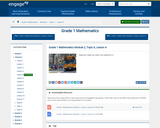
In this lesson, students make ten when one addend is 9.
- Subject:
- Mathematics
- Material Type:
- Lesson Plan
- Provider:
- EngageNY
- Author:
- Engage NY
- Date Added:
- 04/23/2019

In this lesson, students make ten when one addend is 9.
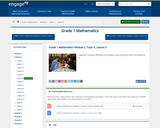
In this lesson, students compare efficiency of counting on and making ten when one addend is 9.
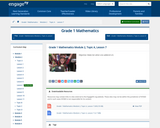
In this lesson, students make ten when one addend is 8.
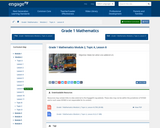
In this lesson, students make ten when one addend is 8.
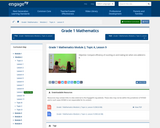
In this lesson, students compare efficiency of counting on and making ten when one addend is 8.
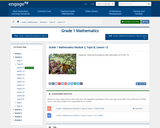
In this lesson, students solve word problems with subtraction of 9 from 10.
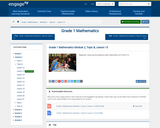
In this lesson, students solve word problems with subtraction of 9 from 10.
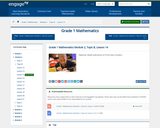
In this lesson, students model subtraction of 9 from teen numbers.
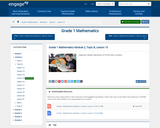
In this lesson, students model subtraction of 9 from teen numbers.
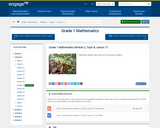
In this lesson, students model subtraction of 8 from teen numbers.
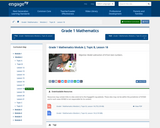
In this lesson, students model subtraction of 8 from teen numbers.
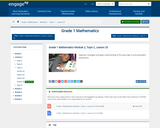
In this lesson, students strategize and apply understanding of the equal sign to solve equivalent expressions.
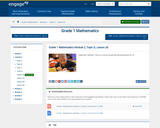
In this lesson, students identify 1 ten as a unit by renaming representations of 10.
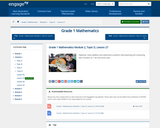
In this lesson, students solve addition and subtraction problems decomposing and composing teen numbers as 1 ten and some ones.
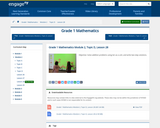
In this lesson, students solve addition problems using ten as a unit, and write two-step solutions.
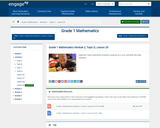
In this lesson, students solve subtraction problems using ten as a unit, and write two-step solutions.
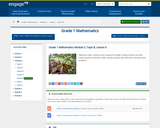
In this lesson, students order, measure, and compare the length of objects before and after measuring with centimeter cubes, solving "compare with difference unknown" word problems.
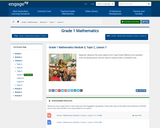
In this lesson, students measure objects with different non-standard units and standard units simultaneously to see the need to measure with a consistent unit.
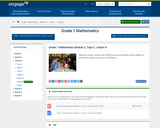
In this lesson, students answer "compare with difference unknown" problems about lengths of two different objects measured in centimeters.
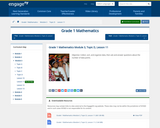
In this lesson, students collect, sort, and organize data, then they ask and answer questions about the number of data points.